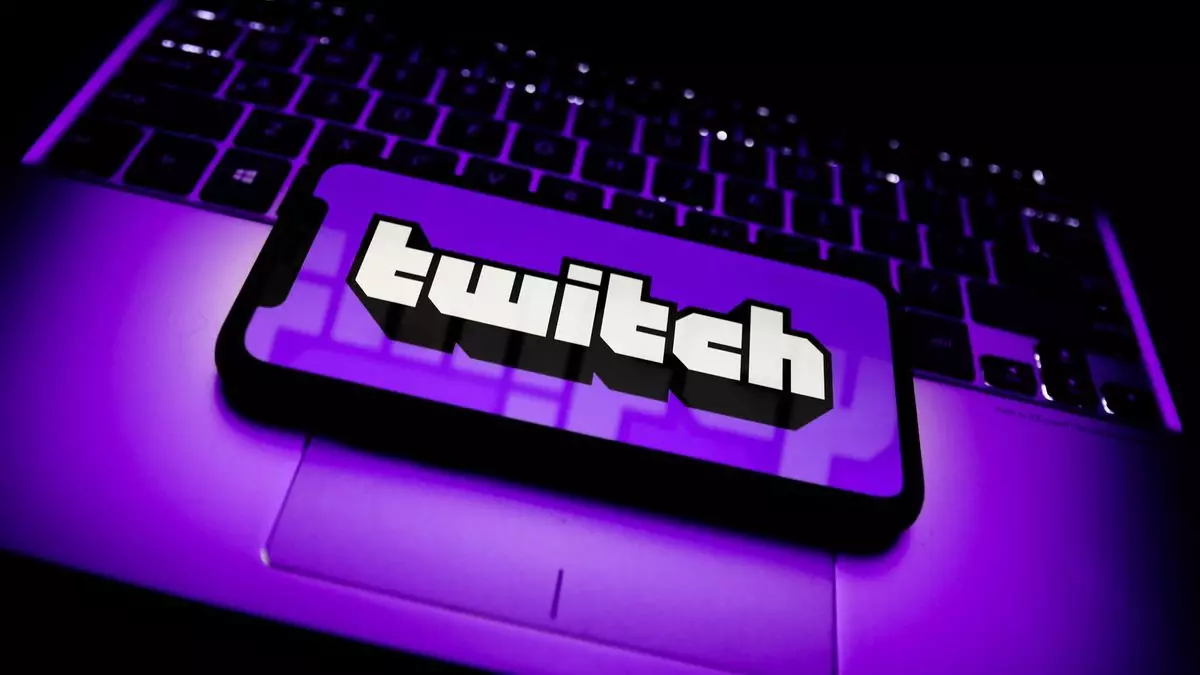In an age where online platforms grapple with the dual challenges of censorship and fostering open dialogue, Twitch’s recent policy modifications around content classification reveal the persistent tension between free expression and community standards. The streaming service’s decisions, particularly concerning discussions around “politics and sensitive social issues,” illustrate this struggle clearly—exemplifying a need for nuance in communication while also showcasing the pitfalls of vague regulatory frameworks.
Less than a week into the implementation of a content classification policy designed to label streams discussing politically sensitive topics, Twitch’s leadership found itself under immediate scrutiny. The original policy arose in the wake of increased incidents of Islamophobia and antisemitism on the platform, highlighted by actions against content creators such as Zack “Asmongold” Hoyt, who faced significant consequences for hateful remarks. In this context, Twitch’s attempt to outline clear boundaries for sensitive content might have been intended to better protect marginalized communities; however, it sparked a wave of discontent among LGBTQ+ streamers, who voiced concerns over what they perceived as a stifling of their shared experiences.
Twitch’s CEO Dan Clancy asserted a strong stance against racism and harassment, reiterating that the platform aims to be a safe space. However, the complications arose when LGBTQ+ identities, which exist as both personal and socio-political realities, were categorized under potentially “political” discussions. Many streamers felt that merely identifying as LGBTQ+ should not require a label tethered to political connotation. This positioning led to fears of marginalization and marginalization correlated to potential financial repercussions, especially as advertisers often shy away from streams marked with sensitive content labels.
A Shift Toward Clarification
Recognizing the backlash, Twitch swiftly revised its policy, clarifying that streamers discussing their “lived experience”—especially regarding identity and reality—would not need to provide a content label. The platform emphasized that content classification was required only when discussions regarding sensitive topics became disproportionately controversial or inflammatory. The intention of these updates was arguably commendable: to ensure streamers felt secure sharing their stories while restoring some trust within the community.
However, criticism regarding the implementation of subjective standards lingered, focusing on the nebulous nature of terms like “polarizing” or “inflammatory.” Given that perceptions of what constitutes an extreme viewpoint can vary widely among Twitch’s diverse user base, many questioned the potential for abuse. Different factions of the community, notably right-wing viewers, could interpret honest conversations about identity as inflammatory, resulting in a problematic cycle of reporting and potential silencing.
Twitch’s trajectory toward updating its policies sparked substantial interaction on community forums. A push to eliminate the initial bullet point entirely succeeded in rallying over 38,000 votes. Yet as criticisms regarding the vagueness of the modified guideline continued, a newer request for total removal gained traction as well. Ultimately, this back-and-forth reflects a wider societal dilemma confronting social platforms: how to navigate conversations about marginalized experiences without inadvertently stifling them.
The crux of the argument is notably significant: when does a discussion about lived experience cross the line into politically charged territory? A streamer discussing the implications of a local law affecting abortion rights could be labeled as engaging in political discourse, raising deep concerns over subjective categorizations. Such ambiguity inevitably leads to questions over who determines the lines drawn around sensitive topics and how that clout might be misused, underscoring distrust within the Twitch community.
The Broader Implications in Content Moderation
As Twitch grapples with volatile discussions about sensitive content, its recent policy alterations underscore a persistent conflict in content moderation across digital platforms. The desire for clear boundaries frequently clashes with the complexities of human experiences that overlap personal identity with broader political realities. In a space where the life of a streamer could be intricately tied to their advocacy for human rights, Twitch exemplifies the challenge of maintaining an inclusive environment amidst the pressures to mitigate hate speech.
In essence, Twitch’s situation reflects a reality that is becoming wholly familiar across major social media and streaming platforms: the waters of online discourse are fraught with complexity and peril. The ever-present challenge lies in balancing community safeguarding while ensuring that the voices of marginalized groups are not quenched by bureaucratic limitations. As Twitch continues to modify its approach, it will be critical for the company not just to react to feedback, but to cultivate a proactive strategy that acknowledges and supports the multifaceted narratives presented by its eclectic community of users.

